America’s crippling economic sanctions against other nations
Crippling financial penalties imposed by America
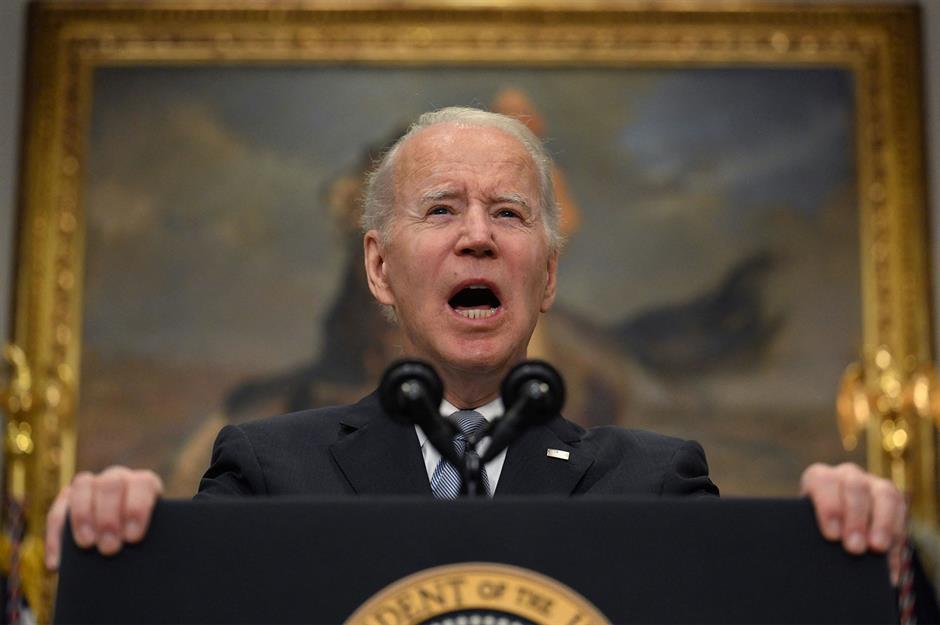
Aggravating the US of A is never wise. As the wealthiest nation it has greater leverage than any other country in the world – and it imposes some of the strictest economic sanctions. Not all punishments are equal. Sanctions can take the form of arms embargoes, withdrawn assistance, tariffs, asset freezes, visa denials, and prohibitions on credit, financing and investment.
Read on to find out who's currently on time out when it comes to doing business with America.
Strict embargoes
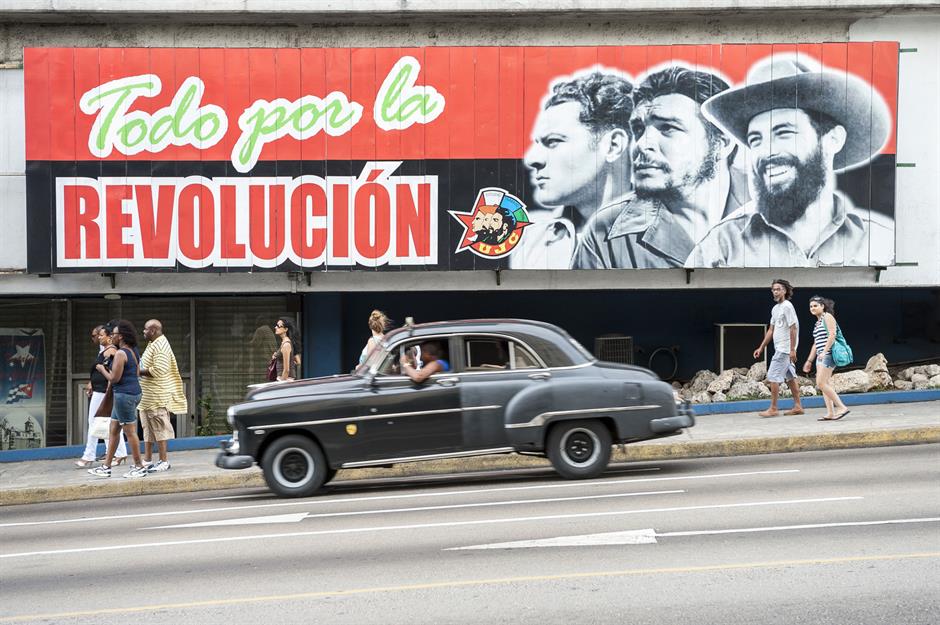
The US government reserves the harshest possible sanctions for four countries it has deemed "State Sponsors of Terrorism." These are Iran, North Korea, Cuba and Syria. Other countries, like Russia and Venezuela may not have this specific designation, but are subject to nearly full embargoes.
Iran
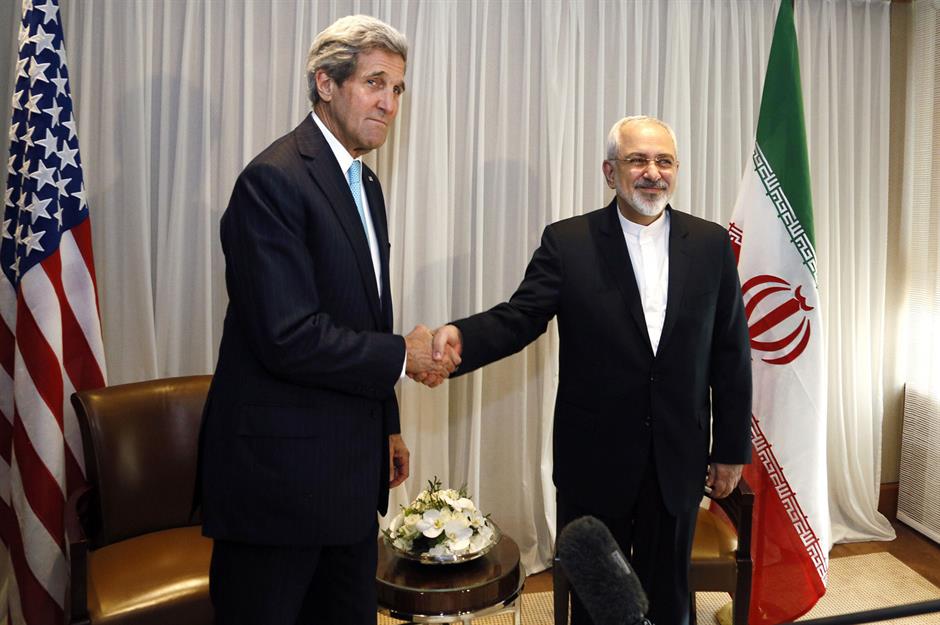
America's uncompromising sanctions against Iran – first introduced in 1979 following the Iranian Revolution – include a near blanket ban on all economic activity with the country, rigid restrictions on everything from arms sales to oil exports, and wide-ranging travel bans on Iranian citizens. These were temporarily lifted in January 2016 as part of the Joint Comprehensive Plan of Action (JCPOA) after inspectors from the international nuclear watchdog concluded that the country had fully complied by limiting its nuclear ambitions. The deal was approved by then-president Barack Obama, and the US was fully on board until Donald Trump's presidency.
Iran

While UN and EU sanctions remain waived, Trump pulled out of the deal in May 2018, calling the agreement "the worst ever." Much to the disappointment of UN and EU members, many of whom thought that abandoning the deal would destabilize the Middle East, the US reimposed its tough sanctions along with additional economic penalties. In retaliation Iran reverted back to violating the nuclear deal.
Iran
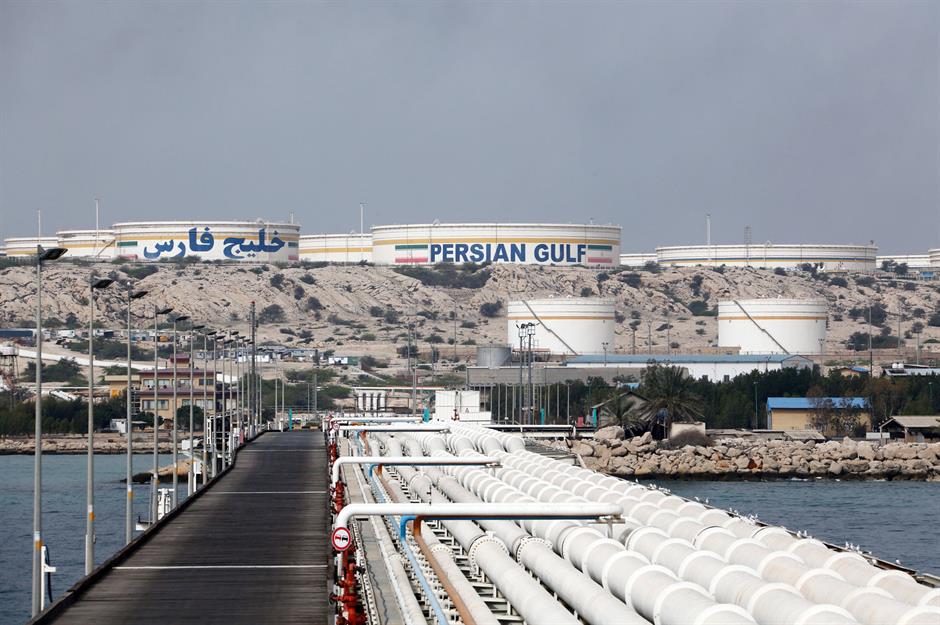
President Joe Biden has been open to returning to JCPOA's deal, provided that Iran agrees to comply with the original nuclear arms restrictions. Unfortunately, after a year of negotiating, no progress has been made. One of Iran's demands is that the US agrees to no future presidents withdrawing from the deal, a complex change that has major constitutional constraints. In the midst of this political stalemate and ongoing sanctions, the Iranian currency hit its lowest ever value this June.
North Korea
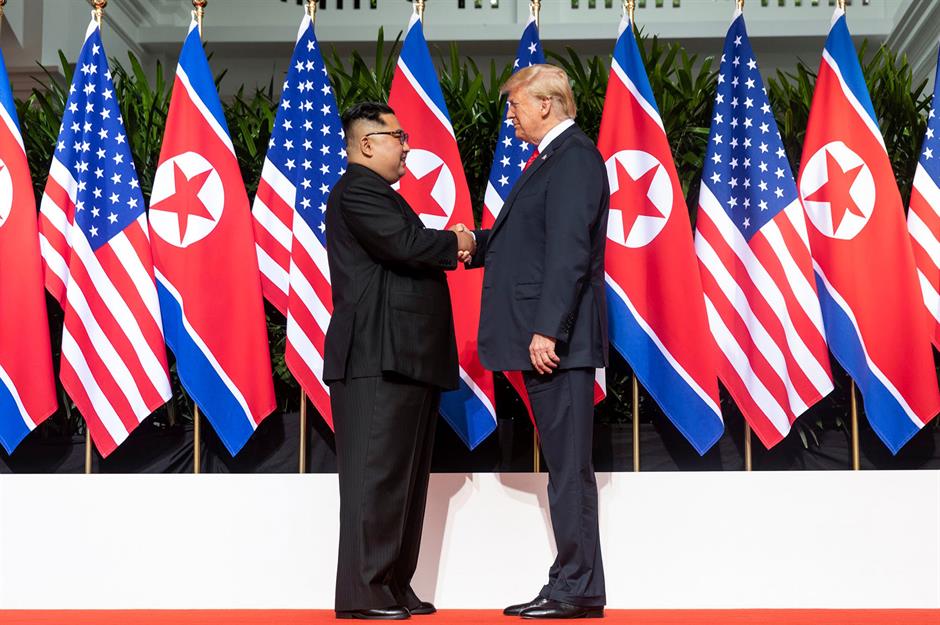
Then-president Trump made history in June 2019 as the first US president to visit North Korea. Despite meeting with the nation's leader Kim Jong-un several times, the two statesmen couldn't reach an agreement on denuclearization. The US has held firm on its decades-old sanctions.
North Korea
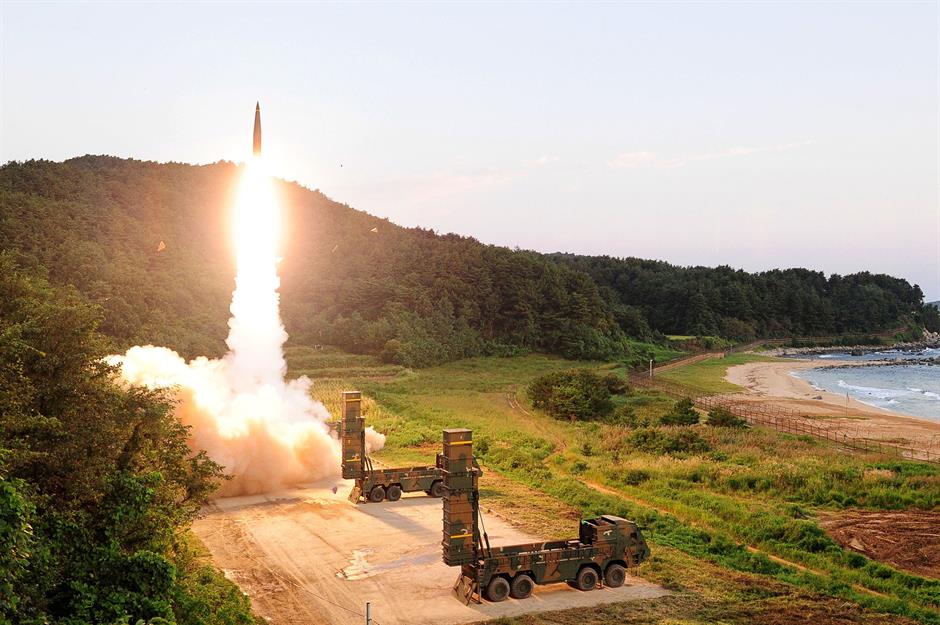
It's not just nuclear weapons that worry the US and other countries. Sanctions against North Korea are also in response to human rights violations such as forced labor including that of children. And the pandemic has made matters worse, not just because it further isolated the hermit country. Rights organizations say many of the COVID-19 restrictions implemented by the North Korean government are not justified from a public health perspective or go overboard, like drastic quarantines or preventing people from traveling locally.
North Korea
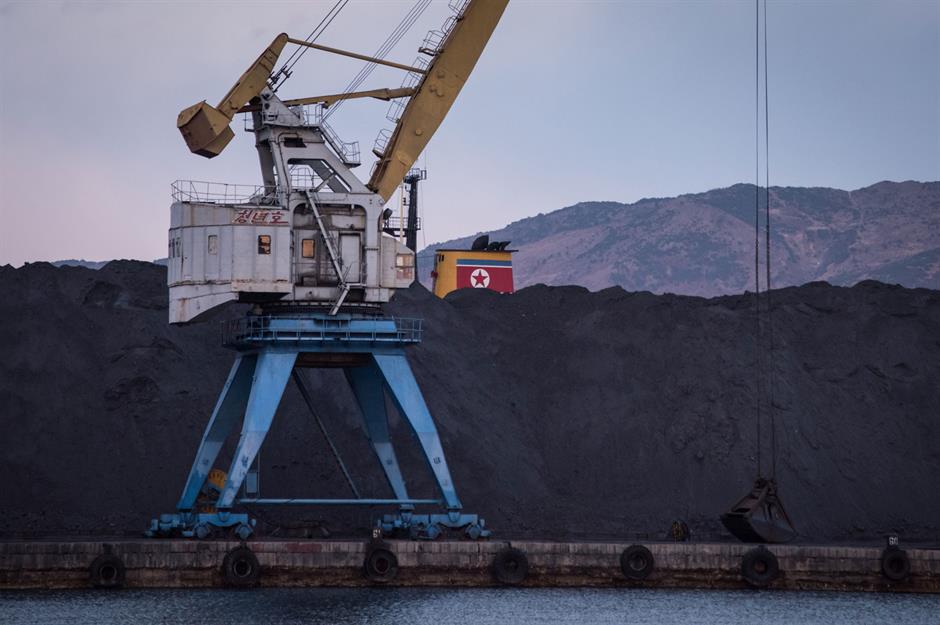
US sanctions on North Korea are harsher than those imposed by the UN and EU, and more or less prohibit all international economic activity and trade, affecting a vast array of organizations and individuals. The sanctions even extend to foreign entities the US believes to support North Korea's nuclear program or to have flouted existing sanctions. They include Chinese and Russian shipping companies, as well as individuals who've been linked to money laundering schemes.
Syria
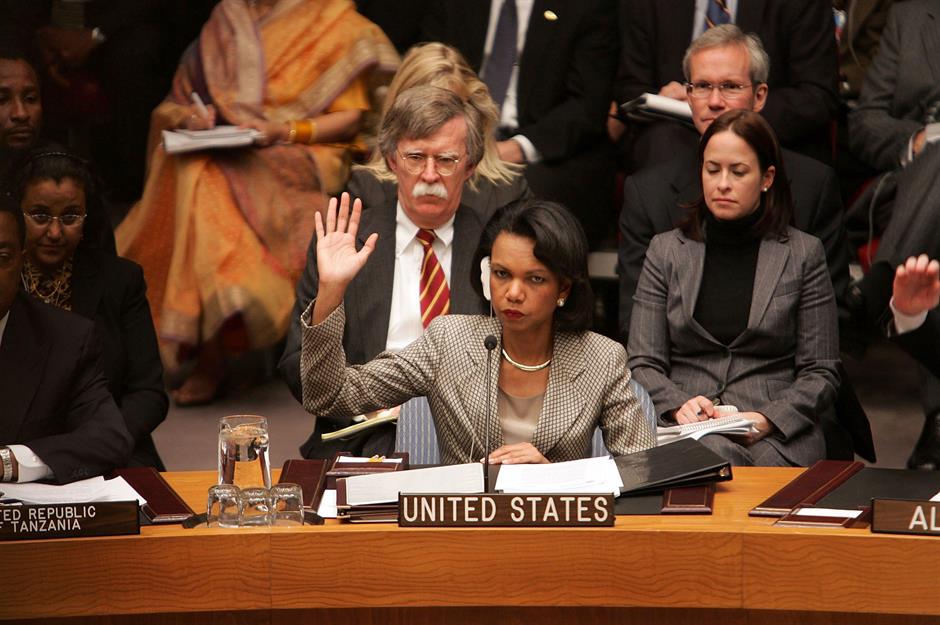
Syria has been deemed a "State Sponsor of Terrorism" since 1979, having this designation for longer than any other country. Back in 2003, then-president George W. Bush and his administration slapped Syria with a sweeping array of sanctions as part of the Syria Accountability and Lebanese Sovereignty Restoration Act, with the goal of preventing the rogue state's alleged sponsorship of terrorism, development of weapons of mass destruction, and illegal oil trade with Iraq.
Syria
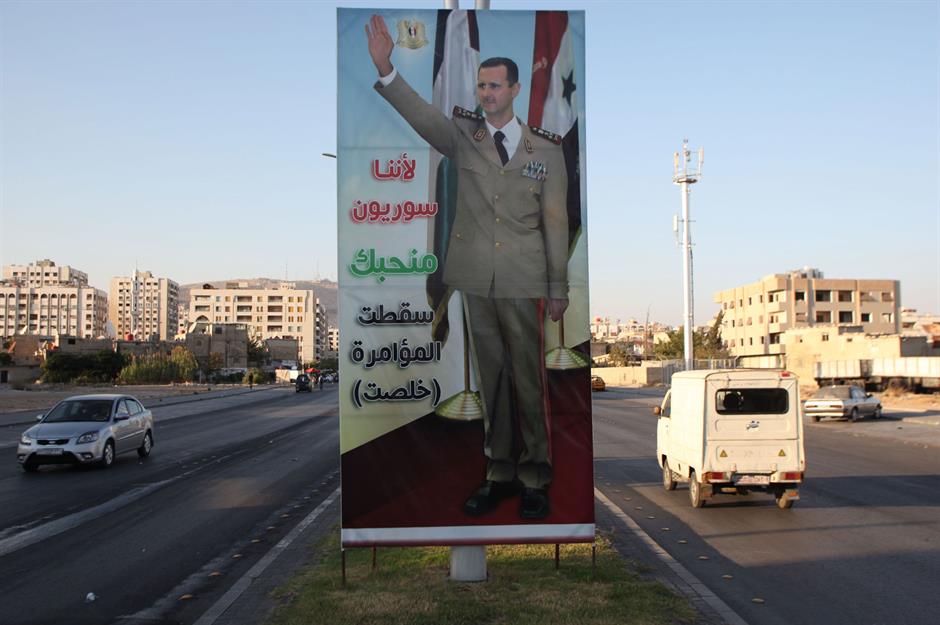
Since then, the US government has tightened sanctions on the brutal regime led by Bashar al-Assad through a series of executive orders and other legal moves as the country's civil war has intensified and the human rights situation has worsened. The sanctions on the war-torn nation are all-encompassing. Americans, no matter where they are in the world, are strictly prohibited from engaging in any kind of business activity in Syria, be it internal investment or purchasing goods or services for export. The US government has also frozen assets of Syrian banks and other organizations, and has introduced travel bans on government officials and supporters of the regime.
Syria
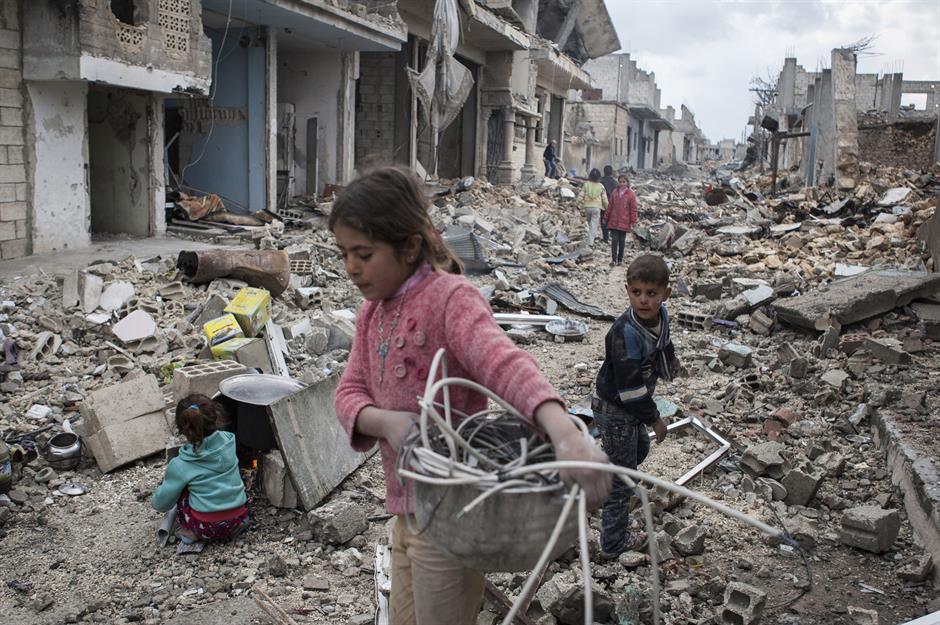
However, this May the US lifted several sanctions in limited areas of northeastern Syria where Assad has lost control. This will allow certain types of industries like construction, agriculture and telecommunications to do business in the region. It's hoped that the decision will benefit many of the civilians in the area whose communities need to be reconstructed and are struggling in the aftermath of a severe drought last year.
Turkey's president Recep Tayyip Erdoğan called the move a "mistake" because the region is held by a "terrorist group." Others argue that this type of investment does the opposite – helping create stability and preventing the dire conditions that can breed support for terrorist groups.
Cuba
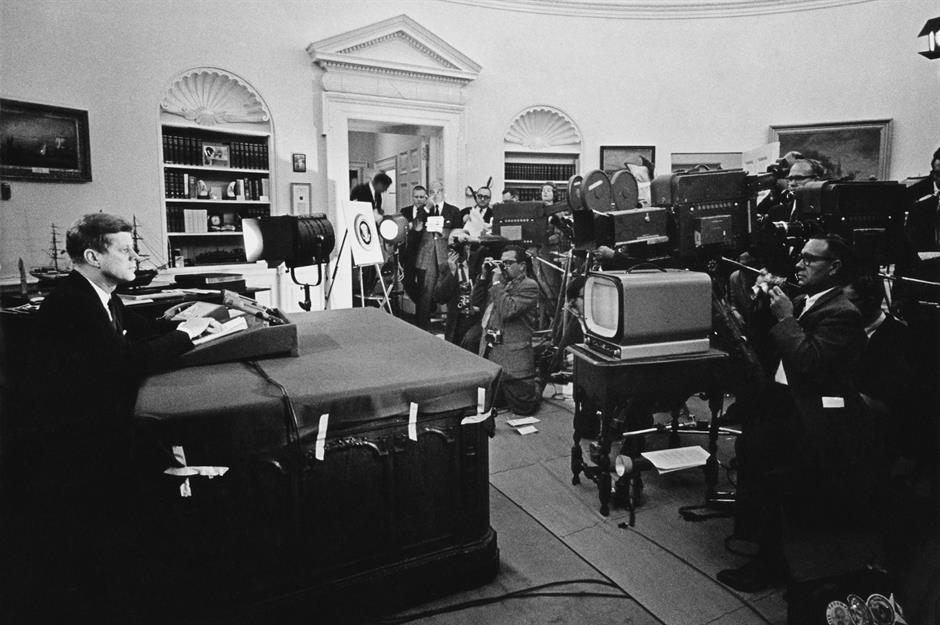
The US imposed an arms embargo on Cuba in 1958 during president Fulgencio Batista's military dictatorship, John F. Kennedy extending the ban to all exports in 1962 after the Cuban Revolution ushered in a communist government. Over the years, US-Cuba relations have been frosty to say the least, and despite condemnation from countries that argue the restrictions are unfair and overly severe, the embargo remains.
Cuba
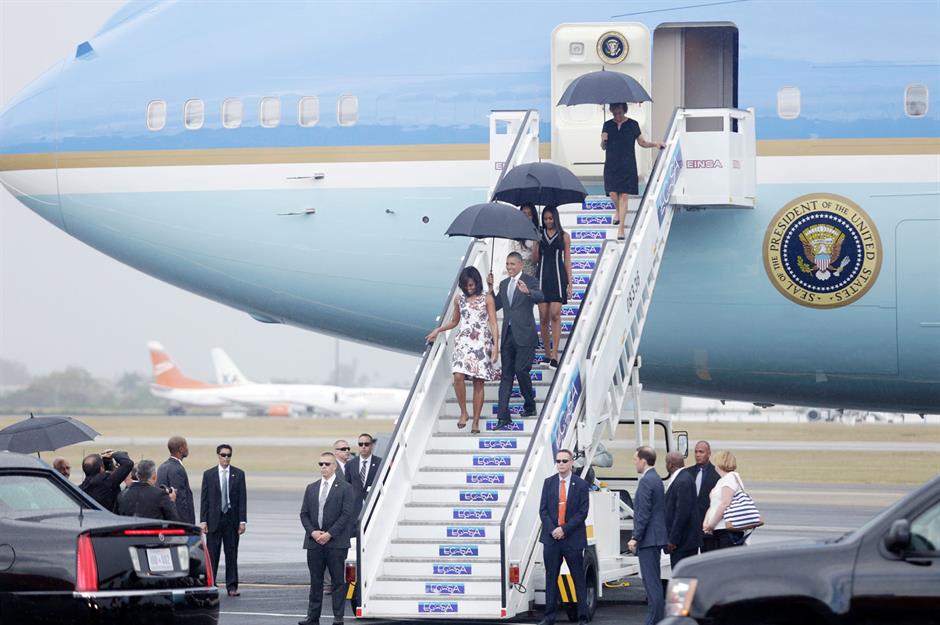
Efforts to improve the relationship between the US and Cuba had varied depending on which political party is in power. In his second term president Bill Clinton relaxed rules for people who wanted to travel to Cuba for cultural and educational purposes and for those who wanted to send money to family members. All of these measures were then eliminated or severely restricted by president Bush. His successor, president Barack Obama, again eased the travel ban in 2011. He also allowed the export of cigars and rum, even attempting to lift the whole embargo, though his efforts were thwarted by Congress. He and his family visited Cuba in 2016, a first for any US president in 90 years.
Cuba
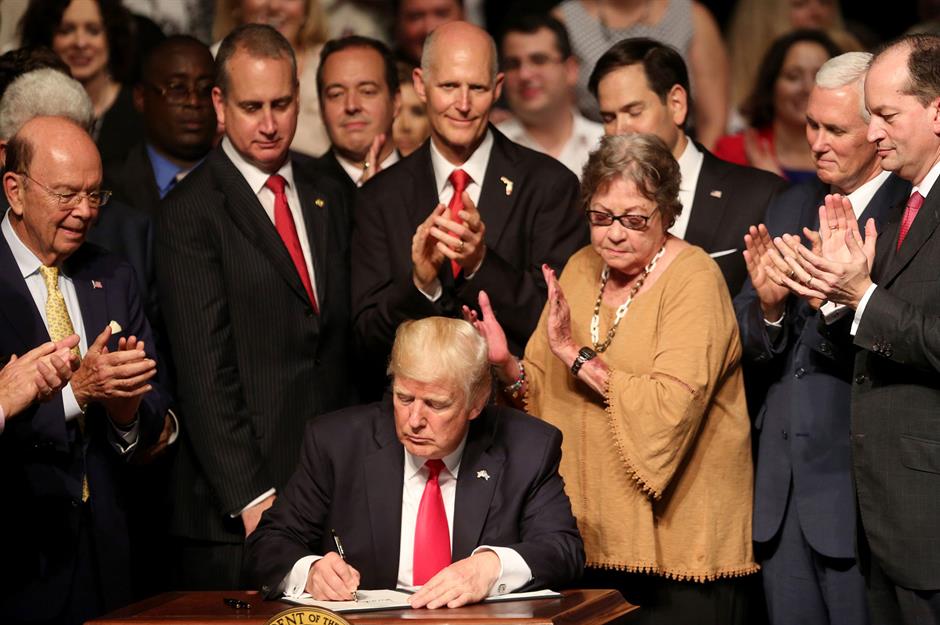
The diplomatic thaw under the Obama administration didn't survive Trump's presidency. To gain the support of Cuban American voters he promised to take a harsher stance against the island nation, and didn't waste much time doing so after entering office. He turned the clock back on all of his predecessor's concessions and returned Cuba to the "State Sponsors of Terrorism" list. This spring, the Biden administration has started to ease restrictions around travel and sending money, but if the last 25 years has proven anything it's that the rules may very likely change again.
Venezuela
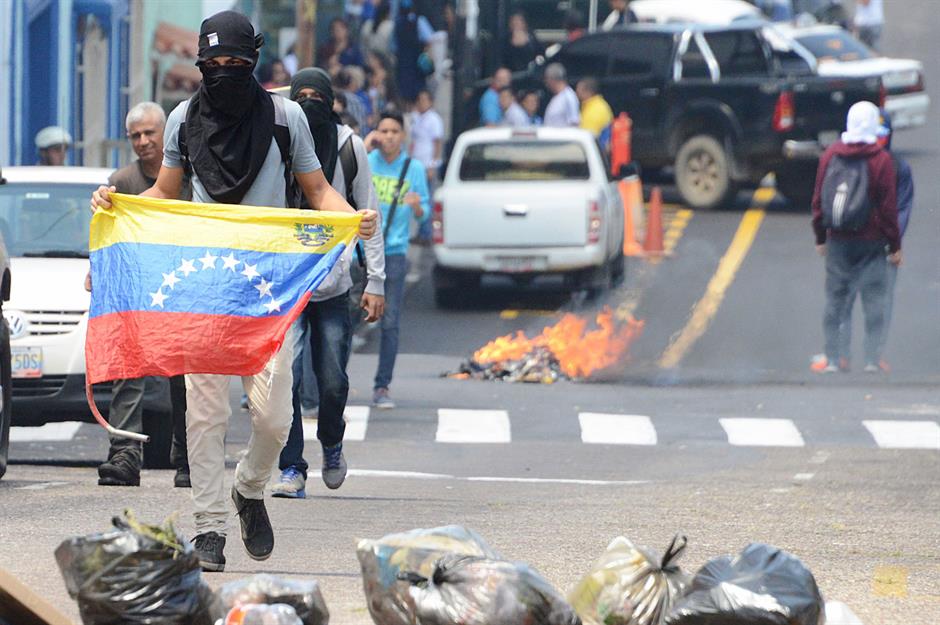
South America's economic and political basket case, Venezuela is in dire straits. The country's economy, which is heavily reliant on oil exports, had been battered by the low price of the commodity, and severe poverty has become widespread. At the same time, president Nicolás Maduro's socialist government has curtailed human and democratic rights.
Venezuela
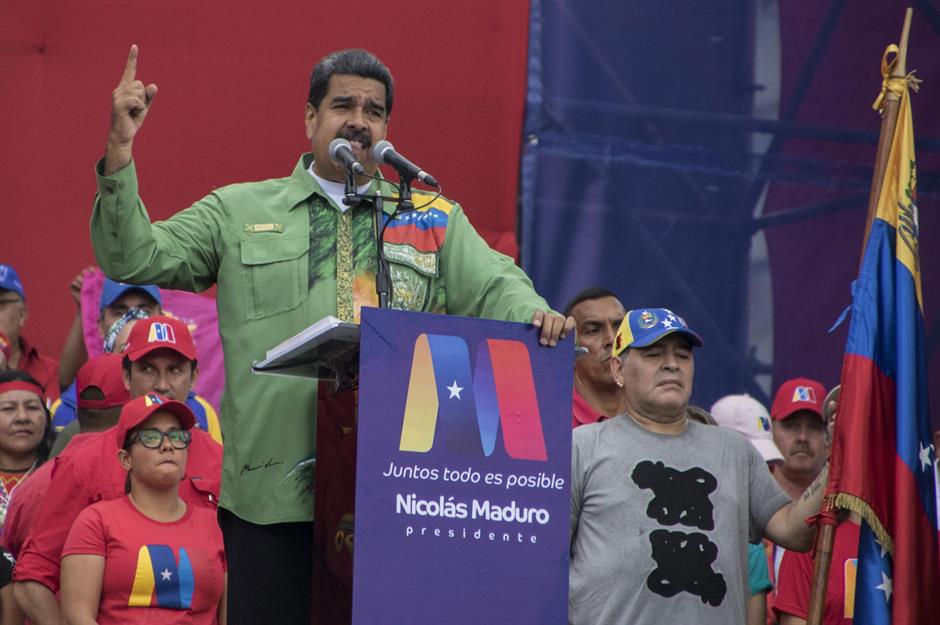
As well as blaming the government of Venezuela for its appalling economic, social and political situation, America accused Maduro's regime of being involved in narcotics trafficking and imposed comprehensive sanctions in 2015 during the Obama administration. President Trump added two more executive orders that tightened sanctions on Maduro and his cronies, placed severe restrictions on certain exports, and banned the purchase of Venezuelan debt.
Venezuela
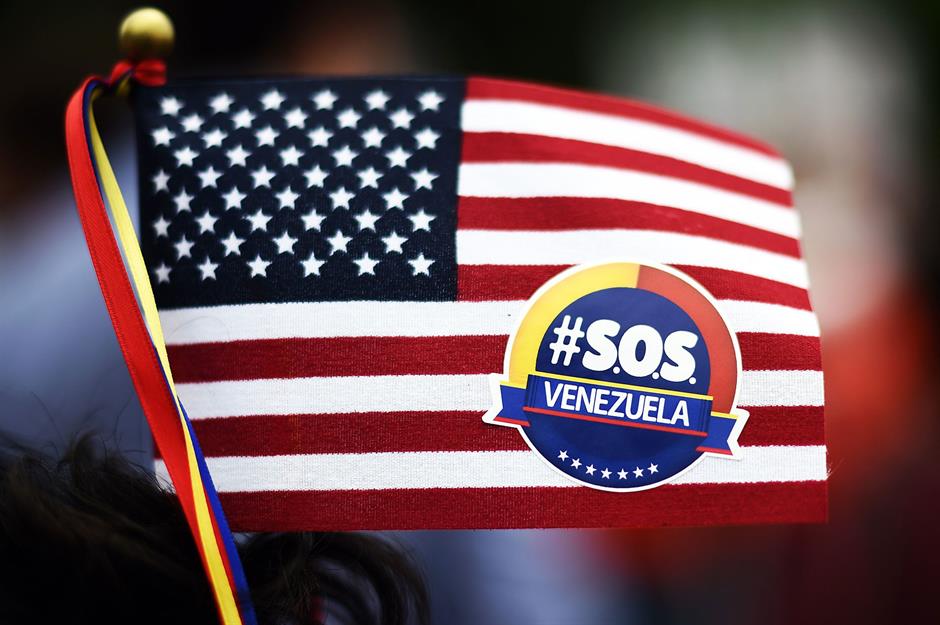
Looking to reduce the world's dependency on Russian oil, the US announced in May that it will lift select energy-related embargoes on Venezuela, allowing the country to sell oil products on the international market. Change is unlikely to happen overnight. So far the new rules mean that Chevron, the single US oil company that still has operations in Venezuela, is only allowed to negotiate its license with the state-owned energy company. No agreements can be established.
Democratic Republic of the Congo
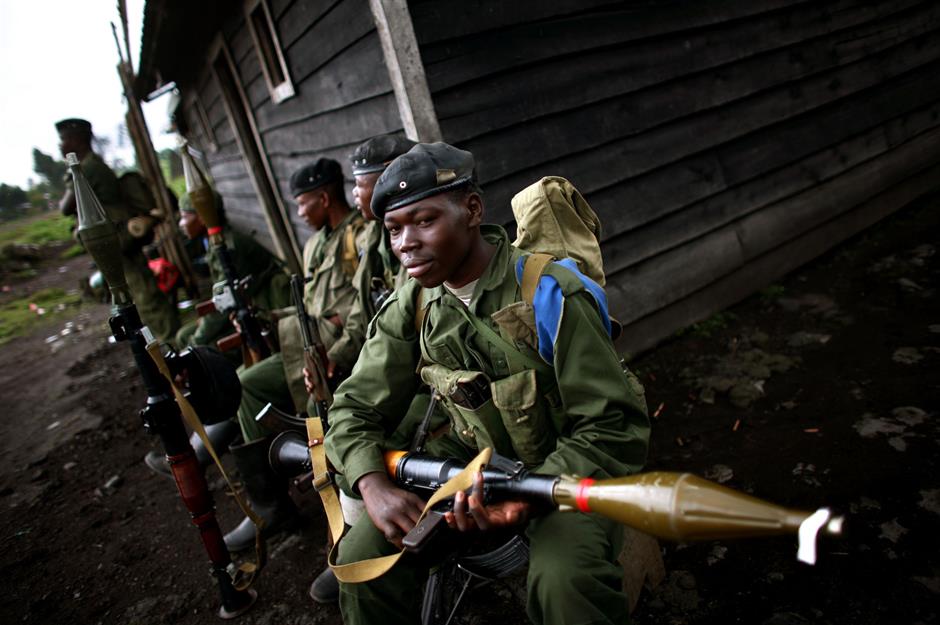
As well as broad embargoes on entire regimes, the US government imposes targeted sanctions on certain organizations and individuals operating in a number of countries considered unfriendly to America.
The US first introduced targeted sanctions against the Democratic Republic of the Congo (DRC) in 2006 in response to widespread violence and atrocities carried out in the war-ravaged African country. Since then, America has toughened its stance against certain entities in the DRC and widened the scope of sanctions. Military leaders including general Muhindo Akili Mundos have been targeted, along with individuals who have been accused of illegal trading with groups engaged in the DRC's ongoing conflict.
Iraq
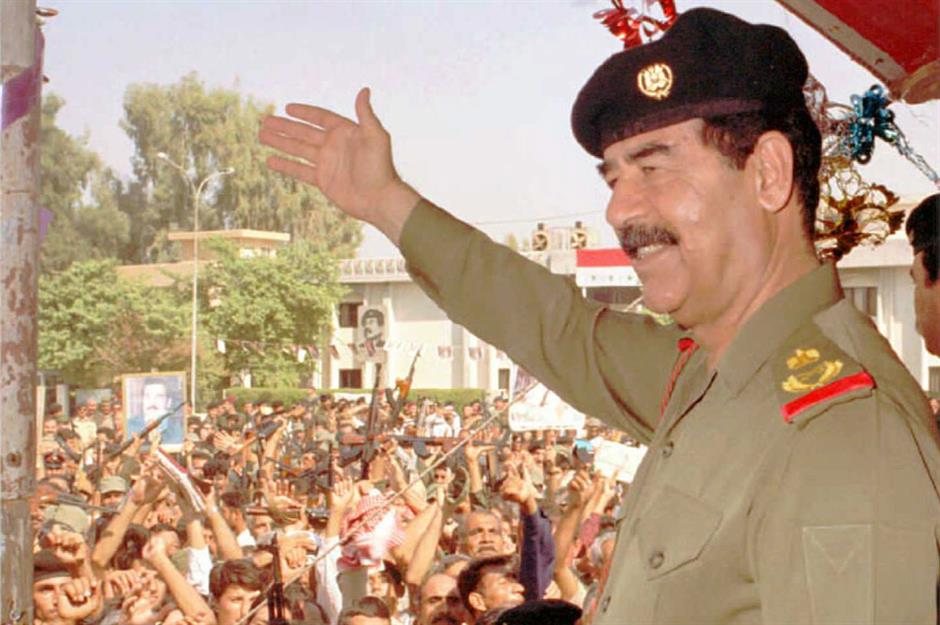
During the dictatorship of Saddam Hussein, the Iraqi regime was under a blanket trade embargo and major asset freeze by the US, which was introduced in 1990 in response to Iraq's invasion of Kuwait. Now that the regime has been consigned to history, Iraq is no longer subject to broad-based US sanctions. Be that as it may, targeted sanctions are still in place on individuals associated with the former regime, as well as entities the US suspects to have been involved in the insurgency and civil war in the country. Those on the sanctions list include terrorists associated with the Islamic State of Iraq and Syria, and members of the Kata'ib Hezbollah paramilitary group.
Yemen
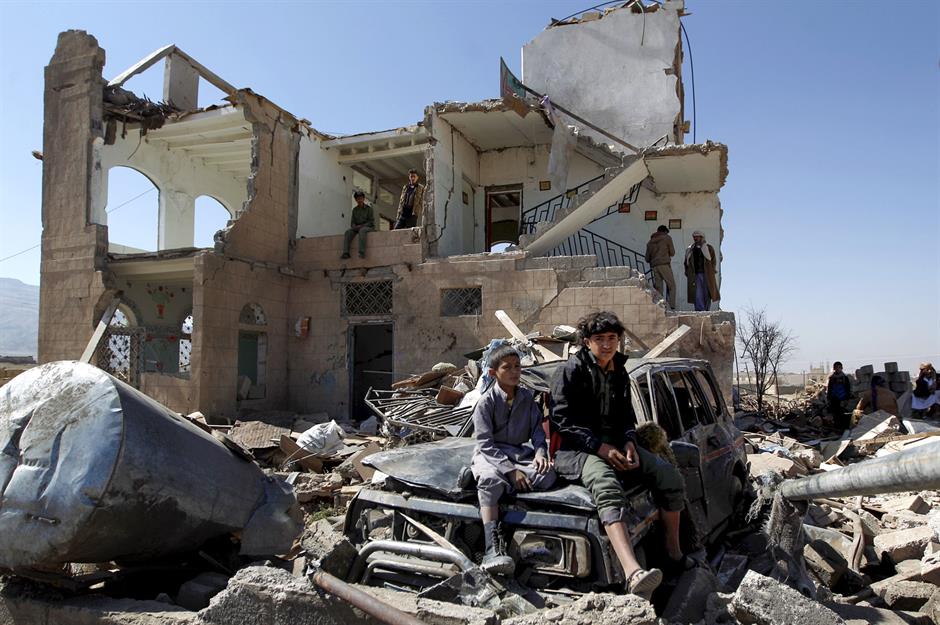
The Obama administration imposed sanctions on entities in Yemen back in 2012 via Executive Order 13611. The order specifically targets individuals and organizations that the US accuses of destabilizing the country, which has since been devastated by a civil war. Much of the list is made up of members of Iranian-backed Houthi militia groups, who are fighting government forces supported by Saudi Arabia in what is effectively a regional proxy war.
China
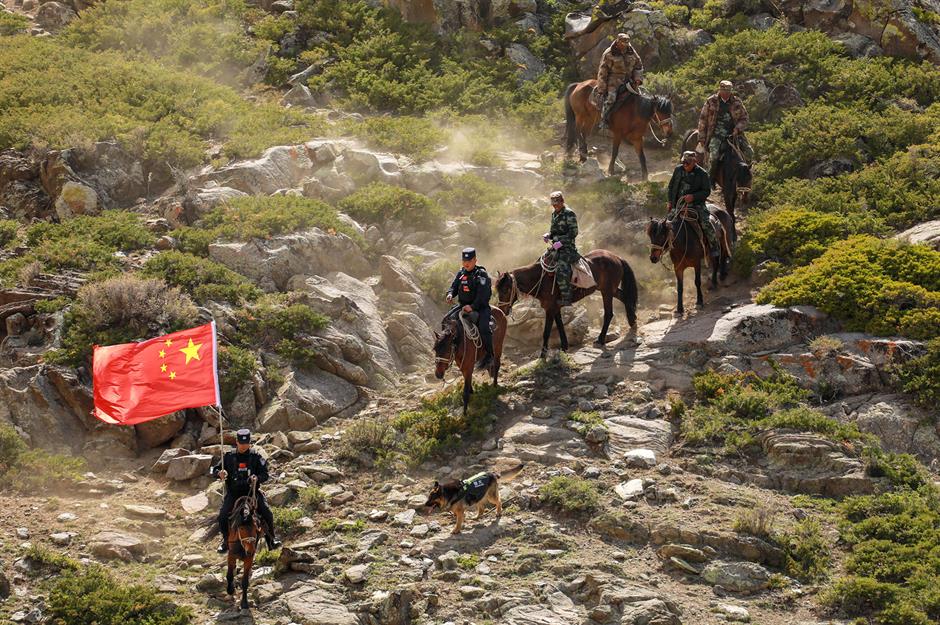
America has numerous embargoes in place in response to China's mistreatment of the Uyghur population in the Xinjiang region. The Biden administration has issued visa limitations on Chinese officials and restricted trade for the biotechnology industry, among other penalties. In December 2021 the US government passed legislation banning the import of any goods from the Xinjiang region that can't be proven to be made without slave labor. The region produces as much as 85% of China's cotton, and is the source of much of the apparel sold in the US.
Afghanistan
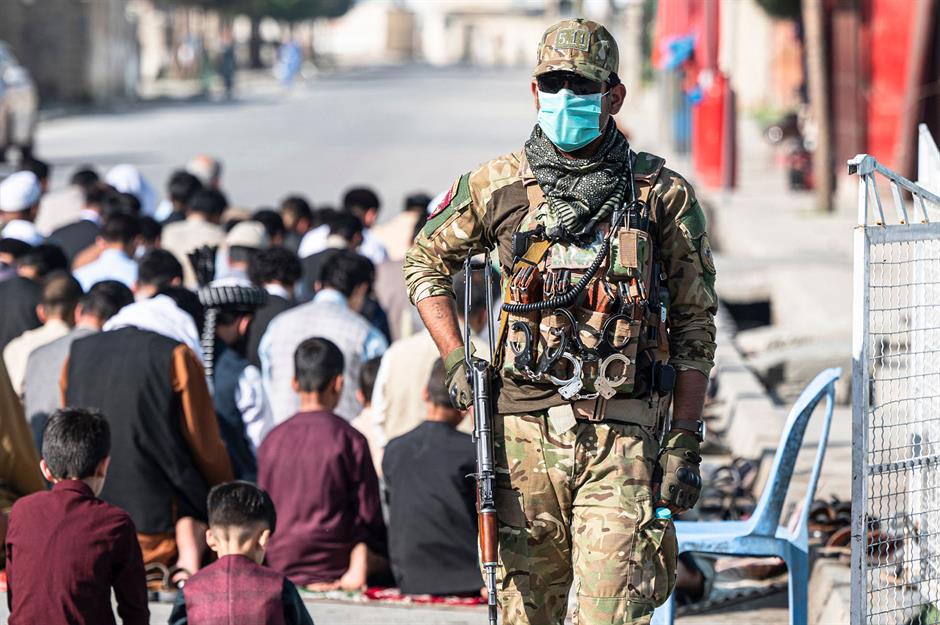
The Biden administration has been critisized for sanctions imposed on the Taliban and the Haqqani Network, which many think will worsen Afghanistan's devastating humanitarian crisis. President Biden has made exceptions for the provision of aid. However, the main point of contention is $7 billion of frozen assets from Afghanistan's central bank currently held in New York's Federal Reserve Bank. Aid groups say this money could be used for Afghanistan to import food and medicine, and could bring stability to the country. Biden's administration has earmarked half of the money for the families of the victims of 9/11, and the other half "for the benefit of the Afghan people." How and when the money will be distributed is uncertain.
Ethiopia
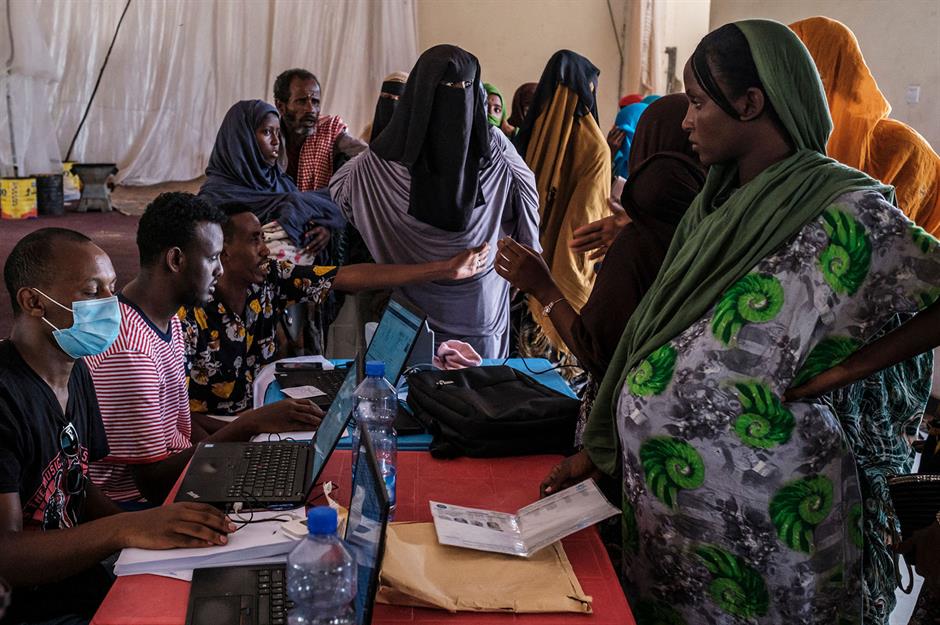
New sanctions related to an ongoing civil war and horrific humanitarian crisis in Ethiopia came into place earlier this year. These don't target named individuals nor only one side of the conflict, but rather anyone who is responsible for human rights abuses, blocks food aid deliveries or takes other actions that contribute to destabilization of the country. This would cover people providing training, weapons or financial support to either side in the conflict, with legal exceptions for humanitarian relief delivery.
Nicaragua
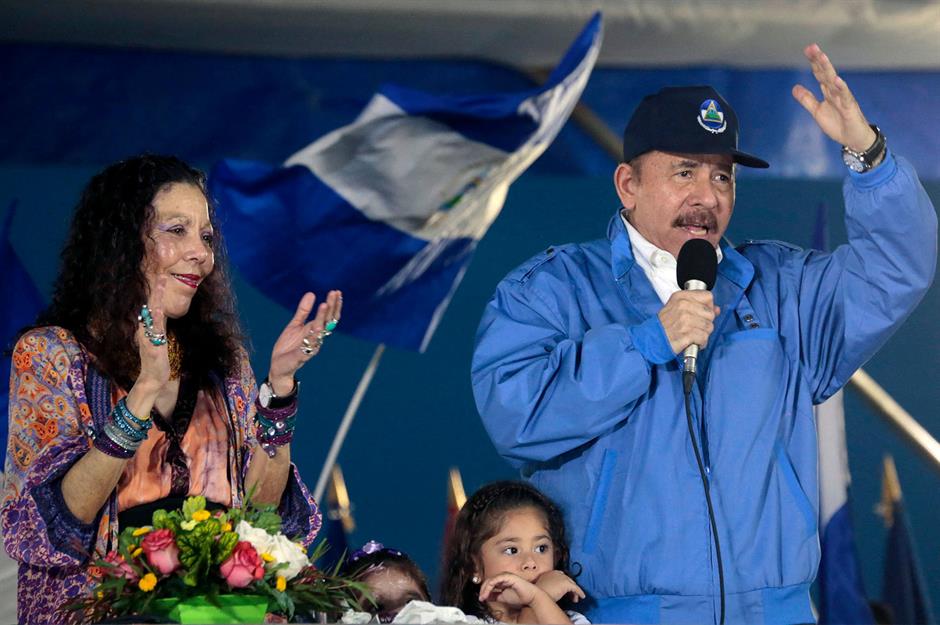
Sanctions in Nicaragua target president Daniel Ortega and his government. Having ruled Nicaragua from 1979 to 1990, and returning to power again in 2007, the US has alleged increasing authoritarianism. The Trump administration slapped sanctions on numerous individuals including national police commissioners and Ortega's daughter citing human rights abuses and attempts to undermine democracy. President Biden continues to add more government officials to the sanctions list following Ortega's fourth run for office last fall. The US denounced the re-election of Ortega and his wife, who is vice president, as a "sham."
Burma
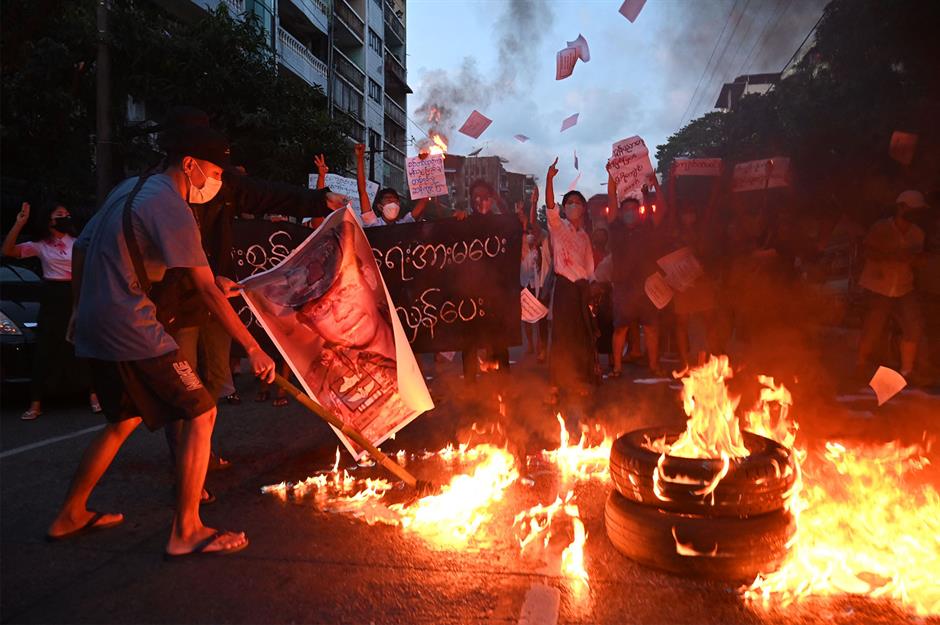
1 February 2021 would have marked the swearing in of Burma’s newly-elected parliament, which the US says was democratically elected. Instead the Burmese military overthrew the government, detaining civilian leaders, shutting down the internet and blocking access to social media sites. The Biden administration quickly launched sanctions against the military leaders and any of their family members who have benefited from the coup. Over the last year this list has continued to expand to include arms dealers and prominent business supporters of the regime. The Burmese military also stands accused of committing atrocities against members of ethnic and religious minority groups for decades.
Sudan
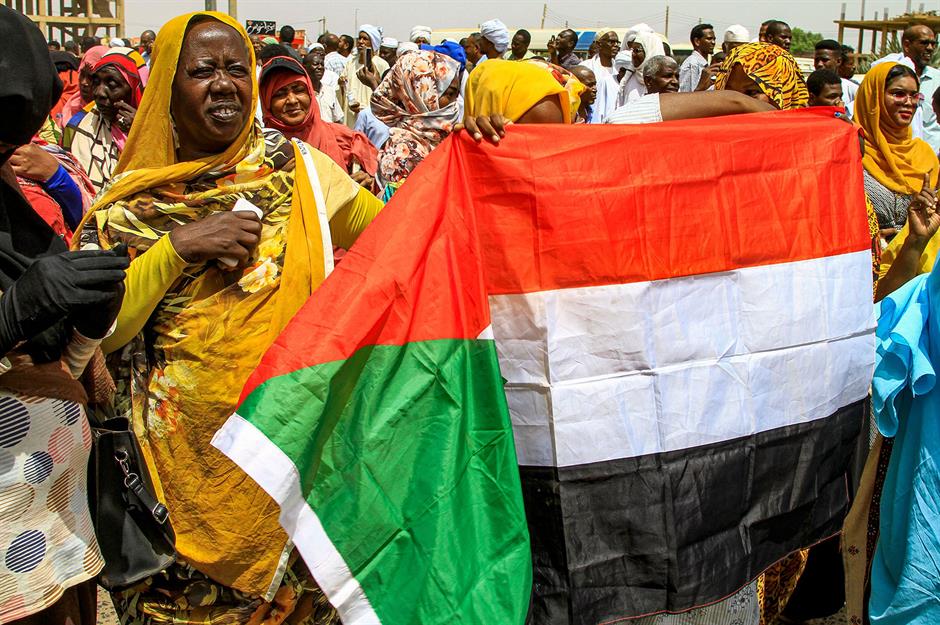
Ever since its independence in 1956 Sudan has struggled with internal conflicts. However, in 2017 the US revoked longstanding economic sanctions against the North African country, allowing US citizens and companies to do business there. But restrictions are creeping back in. This March, America accused the country's Central Reserve Police of serious human rights abuses after it used excessive force against protesters demonstrating against the military-led government.
Belarus
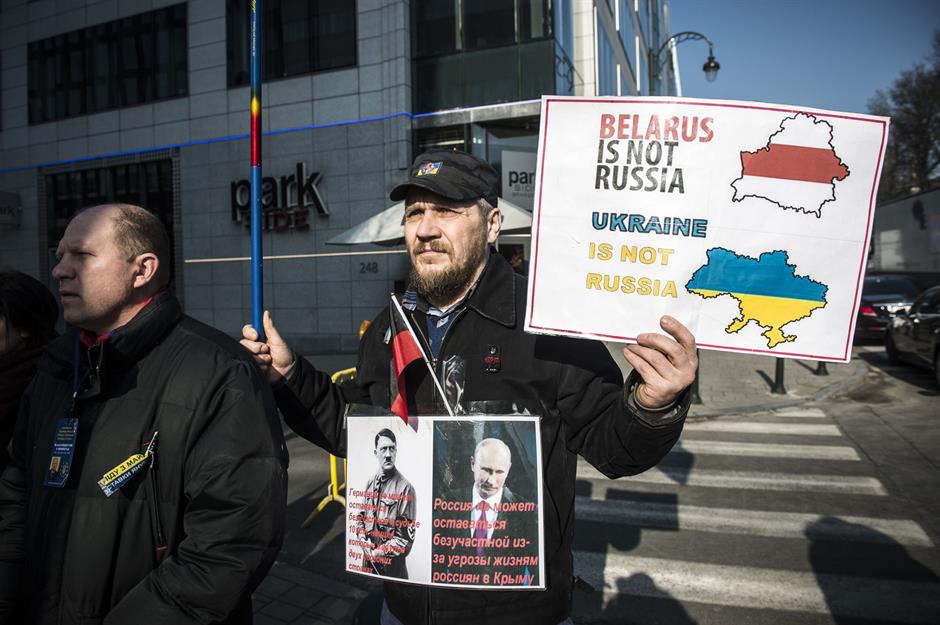
Over the last 15 years the US has introduced targeted sanctions on Belarusian organizations and individuals that limit travel and impose financial restrictions. America's issues with the eastern European nation concern everything from infringing on human rights and democratic elections to money laundering and fraud. The Biden administration has levied extremely severe sanctions following the Russian invasion of Ukraine this February, targeting people and companies in its defense and finance sectors. These are two areas of the economy with close ties to Moscow.
Russia
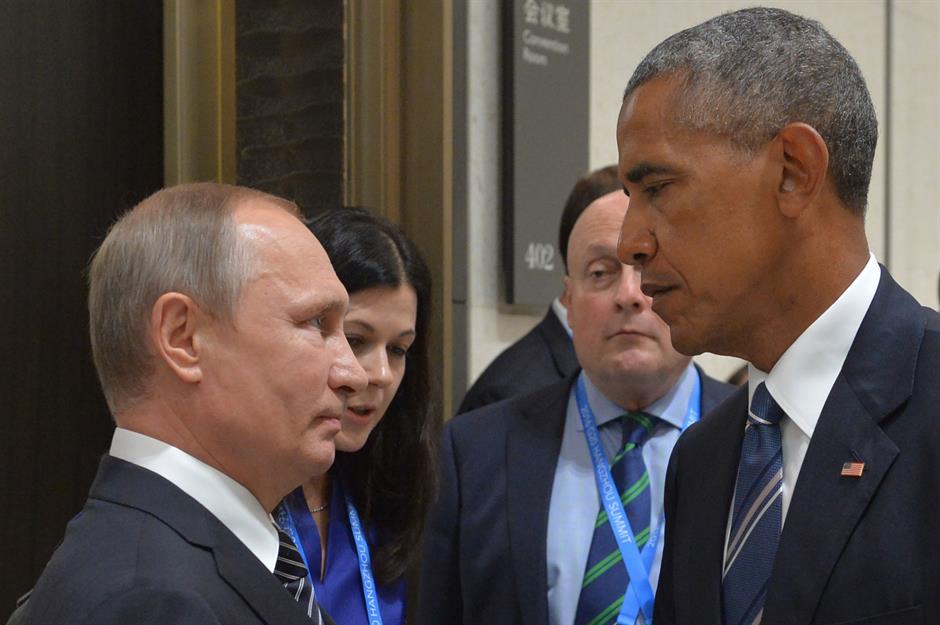
Russia was hit by targeted sanctions from the Obama administration in 2014 following the country's illegal annexation of Crimea. President Trump followed this up with yet more sanctions to address Russia's "malign activity across the globe," including its alleged meddling in the 2016 US presidential election.
Russia
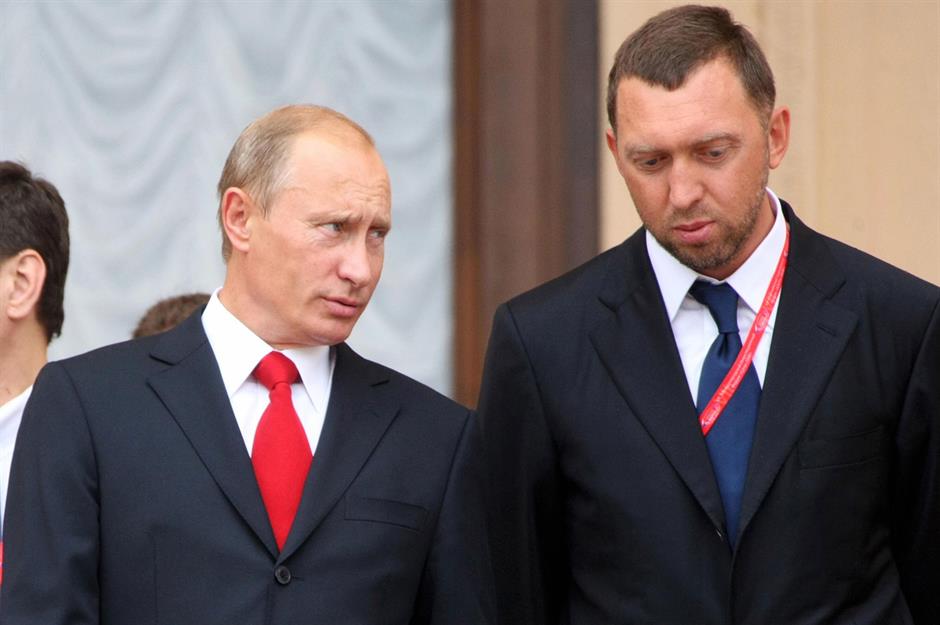
These targeted sanctions applied to Russian businesses and citizens. Corporations such as Gazprom PJSC and VTB Group were banned from US markets, and hundreds of Russian oligarchs, politicians and other well-known figures were subject to asset freezes and travel bans. Notable names on the blacklist include billionaire Oleg Deripaska (pictured here with president Vladimir Putin).
Russia
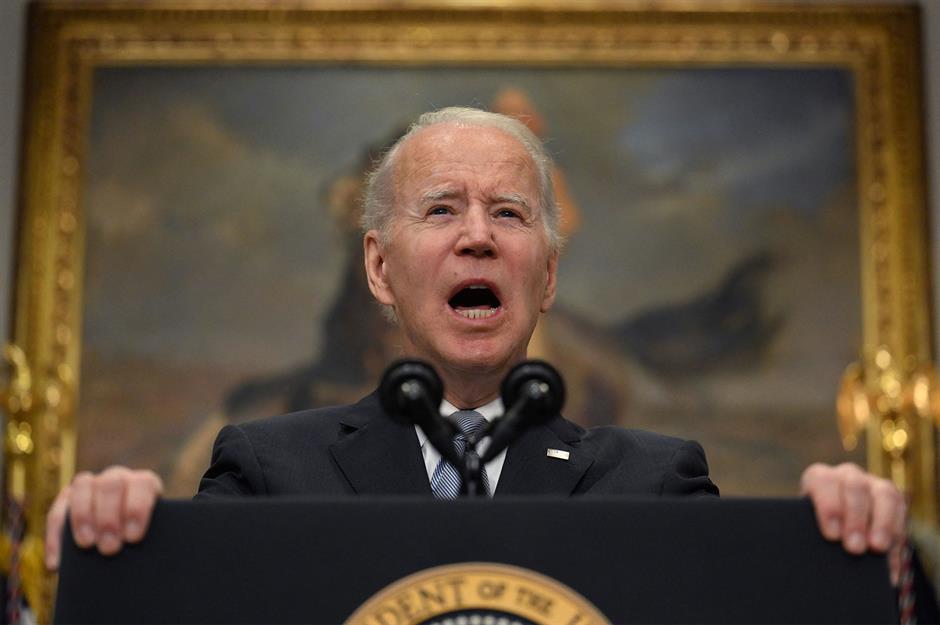
When Russia invaded Ukraine in February the US increased its sanctions to restrict trade, including that of designer clothes, jewelry, high-end cars and alcoholic beverages. Many companies have stopped doing business in Russia voluntarily or are restricting their operations beyond the legal minimum. The Biden administration has also targeted Moscow elites who are close to president Putin, as well as their family members, with sanctions preventing them from doing business with American companies and citizens, and freezing any assets held in the US.
With many countries enforcing strict economic restrictions, Russia’s GDP is expected to contract up to 15% this year, wiping out the last 15 years of economic gains.
Now discover why Ukraine’s economy is so vital to the world.
Comments
Be the first to comment
Do you want to comment on this article? You need to be signed in for this feature